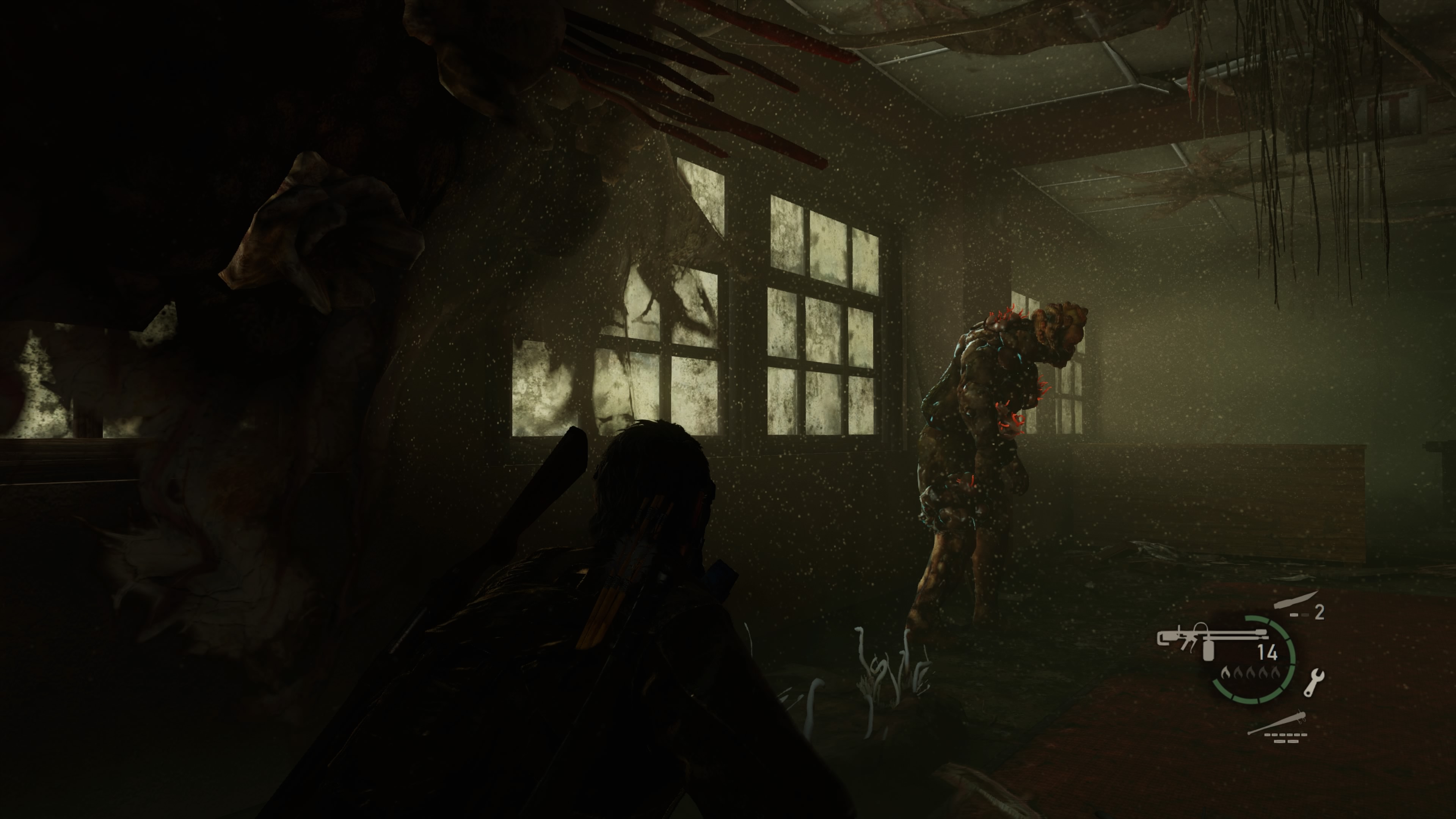The Last of Us

The Last of Us is a harrowing tale of playing as a disease and trying to get one infected person to visit Madagascar so you can bypass quarantines and kill everyone. Oh wait, that’s Plague. The Last of Us is what the humans would experience on their side of that.

There’s some sort of fungal infection breakout—loosely based on the real-world cordyceps, which takes over an ant to create an ant-zombie. The first few minutes of the game are honestly by far my favorite, since they pose the most interesting questions. How would humans react to the first few days of the world being flipped upside down? Would we really start shooting little girls after the first couple hours, or is that just so players will feel the emotional depth of the lead character?

Regardless, shortly after this the gameplay turns into your standard zombie fare. You see enemies, you shoot them. There are some really big and bullet-spongy ones that you need to shoot a lot before they go down.
The story is where this game makes most of its gains over any other zombie shooter out there. The relationship between Joel and Ellie is almost, but not quite, a father-daughter thing by the end. Think Bioshock Infinite, but way less annoying. (Booker, catch!) It’s even got Troy Baker as the lead voice actor!
The great part about not having Ellie be Joel’s kid from the get-go is that they have time to slowly warm up to each other, until by the end of the game Joel is protecting her at almost all costs.

That is, of course, until the roles are cleverly flipped, and Ellie has to do the taking-care-of. Some of the best stuff gameplay-wise is in sneaking around as her, and then as Joel, each taking care of the other to pass through a snowy compound and avoid permanent capture by some nefarious folks. In general, I would say, I had more fun stealthing my way through than shooting, but the game definitely affords either option.

Then the roles flip back, and although the story’s ending reveals some dissonance between player goals and goals internal to the character, it’s entirely believable that Joel would do what he does. He’s been through hell and now seems himself as a protector figure. Normally the tradeoff between “save the world” and “save the one person you care about” feels a little too superheroey for me, so it’s good that the game spends 90% of its time developing that caring feeling.

In short, The Last of Us is about trekking westward across America in search of a better life. Or was that Oregon Trail?
Play it if
You enjoy post-apocalyptic scenery, jokes about characters not being able to swim, slow character relationship development, or throwing bricks at infected hordes